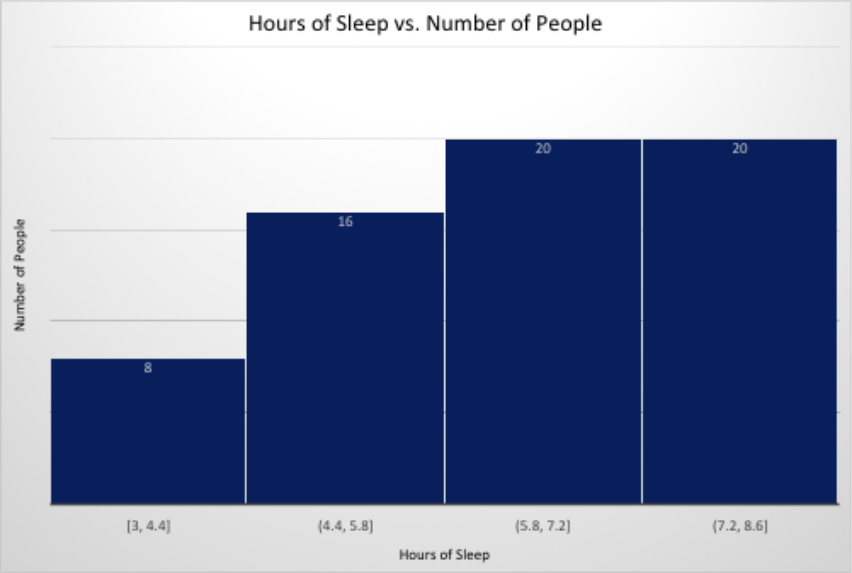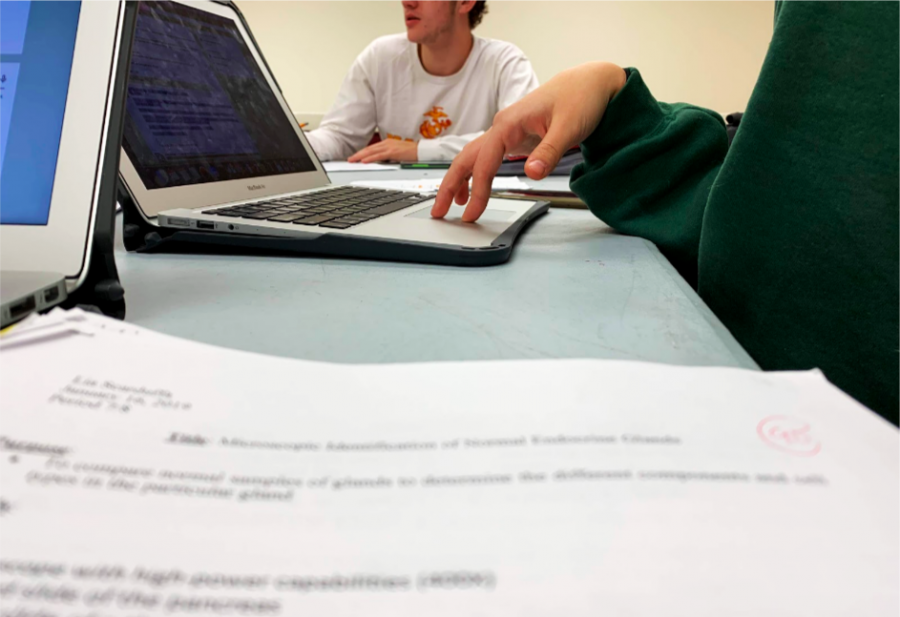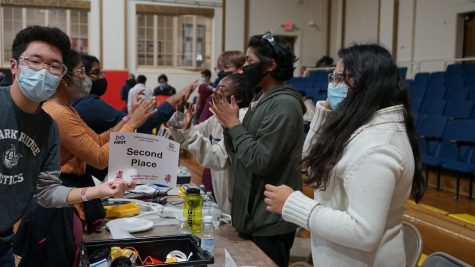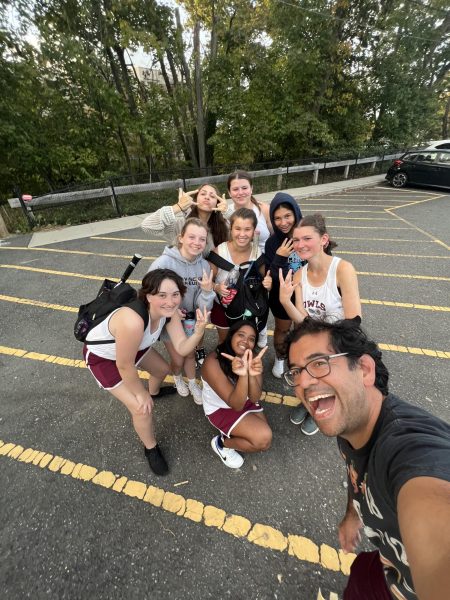Homework: The Cause of Sleep Deprivation? Or is it More Than That?
A typical day at Park Ridge High School consists of sitting in various classrooms from 7:45 to 2:44. However, school carries on much longer than those designated times.
Students are constantly preoccupied with homework after school, and, to delve into just how much work students have, I interviewed Sandra Ortega, Alex Uva, Isabella Wise, Susie Rubenstein, and Josh Zdanowicz about the after-school obligations that consume their time, like homework.
All students stated that they feel like they have too much homework, taking an average of 3-4 hours to complete. Sandra said that the bulk of her homework comes from her Calculus, Anatomy and French classes. Considering all of those classes are Honors courses, it is reasonable that the homework requirement would be considerable. Additionally, AP classes often prove to be even harder, considering they are similar to college level classes. Alex’s AP English and AP European History homework takes him the longest, along with Susie’s AP Psychology class. Even without the added expectations of Honors and AP courses, students are still preoccupied with other time-consuming activities.
Along with homework, students juggle additional obligations after school, including sports and clubs. Izzy told me that she is “a dancer and an assistant dance teacher” so she “is always at the studio for an hour, then [goes] home to eat dinner, then [goes] back to dance for another 3 hours.” Her long day of dance finally finishes around 10:30 when she gets home and starts her homework. Josh is one of the many students who participate in school sports. He stated that, “during cross country season, it was impossible to get homework done.” When he got home from practice, all he wanted to do was go to bed, unmotivated to do any work. However, sometimes obligations do not always revolve around sports. Everyday after school, Sandra has to pick up her younger sister and her friends from school and she has work occasionally, which tends to eat up her time. Sports, homework, family, and work responsibilities tend to pile up on students.
As a result of staying up late to complete their daily tasks, students lose precious hours of sleep. According to the Nationwide Children’s Hospital, teenagers need between nine and nine and a half hours of sleep. However, teenagers only get an average of 7 hours. Investigating further in this statistic, I reached out to a random sample of students and recorded their average hours of sleep over a few days. Similar to the data provided by the Nationwide Children’s hospital, the majority of Park Ridge High School receive between six and eight hours of sleep.

Being sleep deprived can lead to feeling incredibly irritable and tired the next day. Additionally, if a lack of sleep continues, it can affect one’s overall health, making them susceptible to serious medical conditions like obesity, heart disease, and high blood pressure. Sleep is one of the most important things for developing teens. So, how could this conflict be resolved?
I asked the students what they think should be done to change the issue of having too much responsibilities. A few weeks ago, myself and a few of my classmates had to take four tests in one day, resulting in us staying up late in order to study. Sandra, one of my classmates who had to take those four tests, wished that, “teachers [would] coordinate better with each other when they are giving large assignments or tests. The lack of this can cause scheduling issues.” One of those four tests was taken in Mr. Wilson’s Anatomy Honors class, so I spoke to him about the issue. He stated that “kids need to be their own advocates.” If they notice that a bunch of assignments or tests are racking up on their schedules, they need to reach out to their teachers and let them know of their other obligations. If they fail to do so, then it is no longer the teacher’s fault, but that of the student. Izzy came up with the suggestion that homework being optional if you understand what is going on in a class. However, she argued that “if you are struggling with the material, it should be mandatory.” These alternatives might possibly be able to solve some of the problems with homework.
On the other hand, the problem does not solely sit in the issue of homework. Mr. Wilson argued that “time management comes into play,” since students, “wait until the last second to complete things, instead of doing it in small increments over a longer time.” Additionally, “kids feel like they have to join all the clubs and sports.” He stated that there are just too many things going on and so many plates to juggle, eventually something is going to drop. To help solve the overall problem of not only having too much homework, but also the time that sports and clubs consume, Mr. Wilson thinks that having a block schedule can alleviate some of the conflict. Whether the issue is homework or sports, students and teachers both agree that there is a problem. Time management is a large factor that impacts students sleeping time and performance in school. Solutions like homework being more optional, teachers coordinating the scheduling of projects and tests, students advocating for themselves, and block scheduling can all be effective.







Grace Booras • Jan 24, 2020 at 12:49 pm
Despite homework being useful for practice, middle school students should not have homework. Studies show that homework reduces the amount of physical activity for students, the scold of not doing homework is stressful and frustrating, and students do not get enough sleep at night.
First of all, homework reduces the amount of physical activity for students. Too much homework given to students can result in lack of sleep at night, headaches daily, exhaustion, and weight loss. Excessive homework can also result in poor eating habits, which can result in weight loss. According to a school psychiatrist in Oregon, “a low amount of physical activity can result in a change in behavior in a teen, and even make them more disrespectful.” If students are stuck inside, sitting at a desk, staring down at the same paper for hours on end, they can’t have any time or motivation for outside physical activities. Physical activity can also help reduce health problems when the kids are older. The article “Kids need more exercise, less homework” says: “When people ask me, ‘What’s the biggest thing I can do to avoid dementia?’ my answer is ‘exercise,’” said Margaret Gatz, a professor of psychology at USC who has published studies on the connection between diabetes diagnoses in middle age and later Alzheimer’s diagnosis. This shows that not having homework would give students more time to be physical and stay active.
Second, the scold of not doing homework is stressful and frustrating for students. Because kids have outside of school activities and are being scolded for not doing homework, when in fact they have other things they need to do, they are missing out on physical and emotional connections. According to the child psychologist Kenneth Barish, “battles over homework rarely result in an improvement in school.” She proved that students and parents argue over doing homework, which can stress both parties out and create tension in families. Parents scold their children for not doing homework, and then the teacher scolds them. Teachers and parents scolding students can make them feel bad about themselves and reduce the want to learn. “It’s disrespectful to tell me that you don’t have time for homework. You can find the time.” Says the teacher. This can make the students feel pressured to cancel after school activities and make them feel stressed out and busy all the time. According to a study done at Stanford University, “56 percent of students considered homework a primary source of stress.” The hours spent everyday in classes plus the hours spent doing homework leads to students feeling overwhelmed and unmotivated. Homework can help students with time management, but it also teaches them to worry and stress about things. When students are stressed out, it can lower their grade, and cause them to zone out during class.
Last of all, students don’t get enough sleep at night due to staying up late doing homework. “All students stated that they feel like they have too much homework, taking an average of 3-4 hours to complete.” (Homework: The Cause Of Sleep Deprivation) In the 2006 pole, it has been shown that 80% of middle school students don’t get enough sleep at night because of staying up doing homework, and at least 28% fall asleep in school. Students all over America stay up for hours on end trying to finish their homework. Studies show that Middle school students should get no less than 9 ½ hours of sleep per night. “Similar to the data provided by the Nationwide Children’s hospital, the majority of Park Ridge High School receive between six and eight hours of sleep.” The amount of homework that kids have has increased by 11% since the 1990’s. With 6 different classes to try and juggle, taking home their work is stressful; students need breaks. A student once said “If I can’t sleep at school, then I shouldn’t have to do school work at home.”
Even though homework can help students practice the skills they are learning in their classes, students should not lose sleep, lose physical activity, or be stressed out over so much homework at a young age.
This is my essay I am writing for my language arts class. I do agree that homework can be useful in many situations, but I do stand by my point in saying that if you can’t sleep at school and do the things you do at home at school, then you should have to do SCHOOLwork at home 🙂
Cench • Jan 28, 2019 at 1:36 pm
Hi!
I’m interested to see how many students have their devices near them and check social media, answer texts, etc. while they are doing homework. I agree with Mr. Wilson that especially in PR, students over commit and overwhelm themselves being involved in too much. Lack of sleep is caused by more than homework and school activities. Many students have expressed they have a hard time actually falling asleep – most likely due to over stimulation of the brain with devices prior to going to bed, binge watching shows or gaming. How long would homework take without distractions? Just a thought 🙂